Jake Daniels: Is it easier for women footballers to come out?
- Published
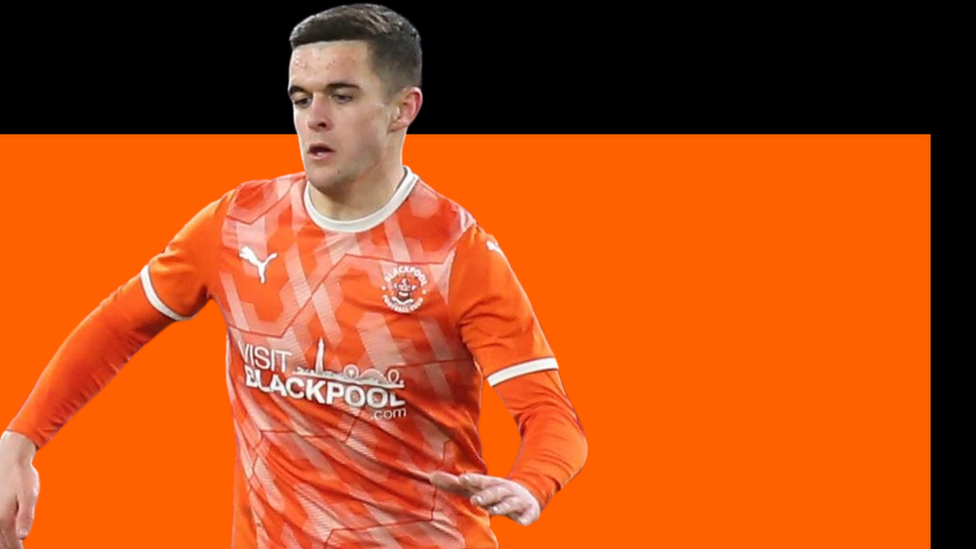
Men's football has not had an openly gay player in more than 30 years
Men's football could pick up a few tactics in diversity from the women's game, according to fans.
Footballer Jake Daniels received widespread praise and support as he became the first active player in more than 30 years to come out as gay.
But the news has laid bare the differences in how LGBT players are treated.
Fans of the women's game said there was less pressure for players to perform to gender stereotypes.
In 1990, Justin Fashanu stunned the football world when he told a newspaper he was gay.
Three decades on, he remained the only male footballer to reveal his sexuality while playing professionally in England's top tiers - until the 17-year-old Blackpool forward's announcement on Monday.
Although Daniels has received a very different reception to Fashanu, who was "absolutely vilified," fans of the women's game have said not enough progress has been made in the men's game, compared to LGBT diversity in women's teams.
Lou Englefield, director of Pride Sports and Football v Homophobia, told BBC Wales: "Times have changed since Justin but nobody has actually been actively playing when they've come out.
"So it's really great that Jake feels he can do that."
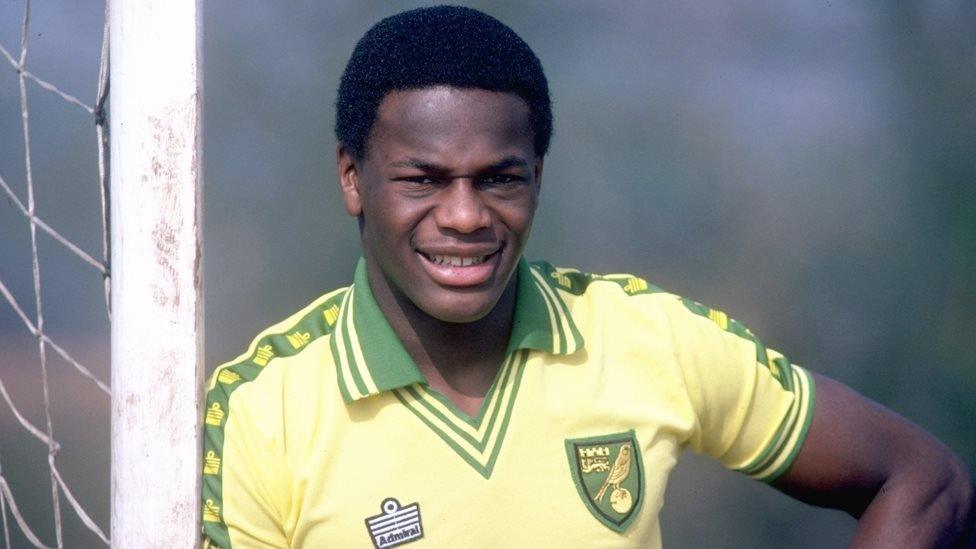
Justin Fashanu came out as gay in 1990
Ryan McGavock from Cardiff Dragons, a football club for LGBT+ players, told BBC Radio Wales: "There's so many positive role models within the women's game, so many active campaigners and voices for change, and certainly the men's game can learn a lot from that.
"It's not just the positive role models on the pitch, it's the atmosphere in the crowd and attitude within the fanbases as well."
Dr Penny Miles, a member of the Wal Goch Y Menywod (Wales Women's Red Wall) supporters' group, who is researching diversity in football, said: "I think it's really important in terms of representation... a gay man coming out in a highly masculinised culture.
"In terms of LBTQ+ inclusion, there's probably not really a comparison. Our women's national team compared to our men's team has got several openly lesbian and active players like Jess Fishlock. If you look at our men's team you don't have any out players yet.
"Women's football is much more inclusive and accepting."
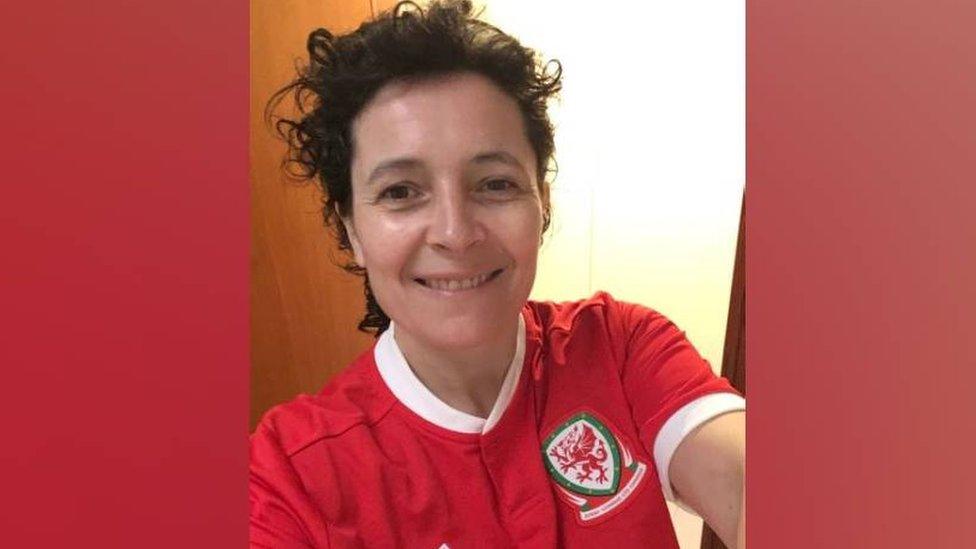
Dr Penny Miles said there was no comparison in LGBT inclusion between men's and women's football
But Ms Englefield added that the women's game still had its own issues with representation.
"If you look in Wales, for example, Jess Fishlock came out and received homophobic abuse.
"Women's football within the game, so fellow players, is more accepting. I think that's because there's less pressure to conform to a particular type of gender stereotype in the women's game.
"If you listen to Jake, what he talks about is kind of performative masculinity - he talks about footballers feeling that they need to present a certain type of masculinity and that being gay would be seen to be weak within men's football, although obviously he disputes that.
"In the women's game, we've got a different stereotype. Quite often women footballers are stereotyped as gay even when they're not."
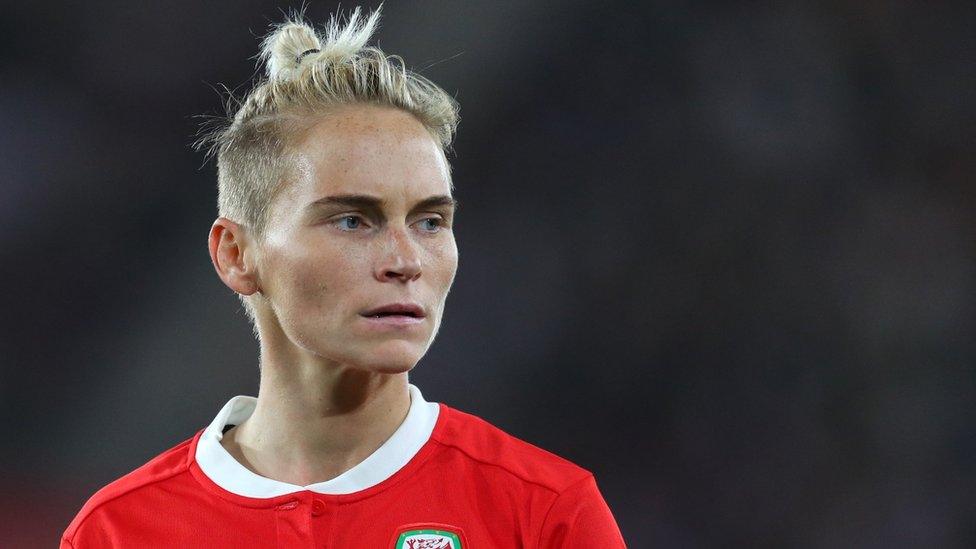
Wales player Jess Fishlock is an LGBT role model - but was abused when she came out
She added that it has not always been easy for women footballers to come out.
"Historically there's been some anxiety by some professional women's footballers concerning that stereotype - if we come out and we say that we're gay, then everyone thinks 'well of course you're gay' because she's a female footballer. So I know that pressure has been there.
"Within the game, among women themselves, I feel that there's more room for women players to be themselves and less of that pressure.
"But outside women's football, outside the team environment itself, to think that there's no homophobia around women's football is not true."

HAYLEY PEARCE PODCAST : Tackling the issues that make your group chats go off
COMING OUT: From secrets to social media, conversations from the LGBTQ+ community in Wales

- Attribution
- Published17 May 2022
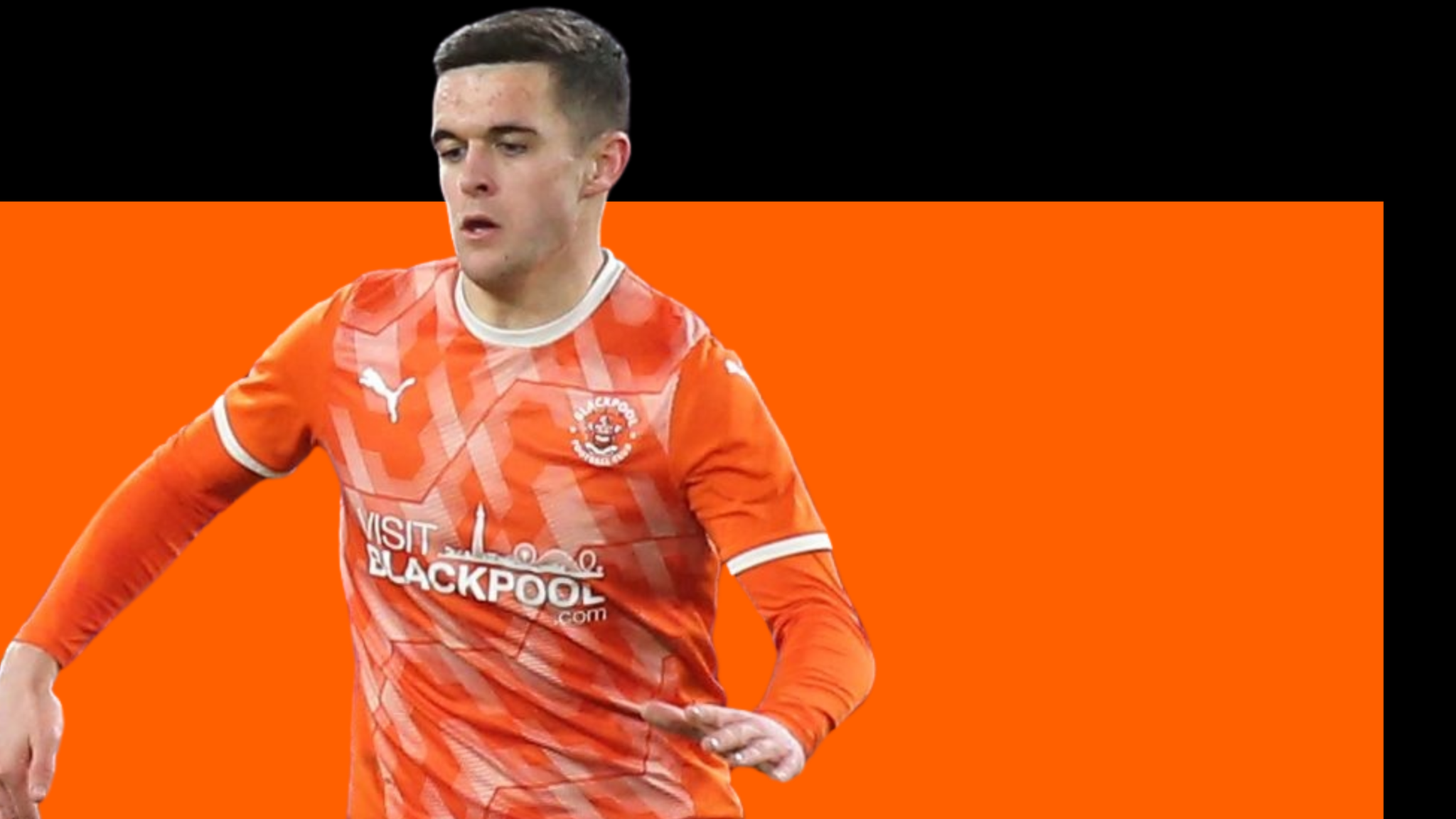
- Attribution
- Published17 May 2022
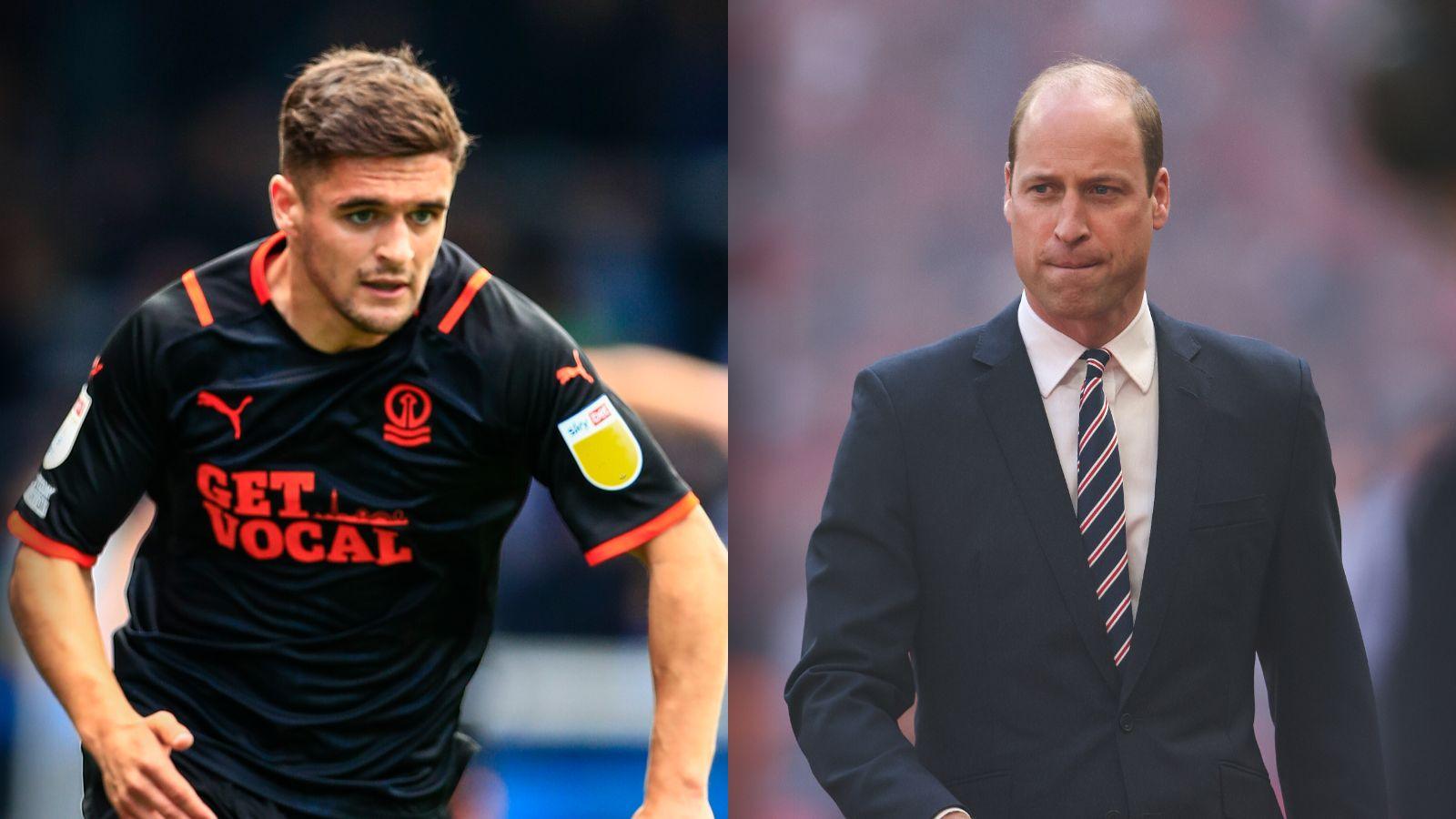
- Attribution
- Published6 February 2019

- Attribution
- Published27 January 2022
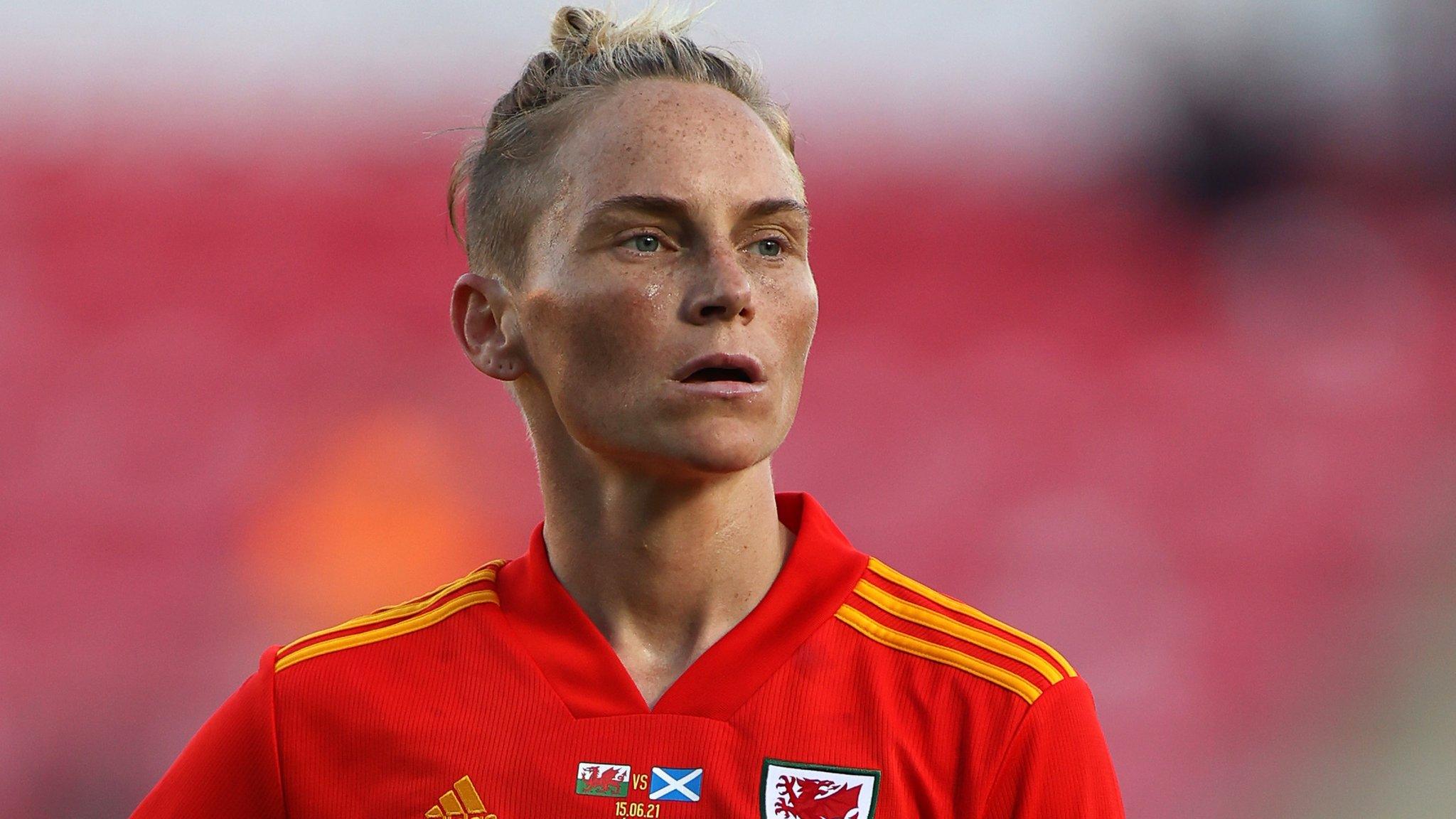
- Attribution
- Published25 February 2021
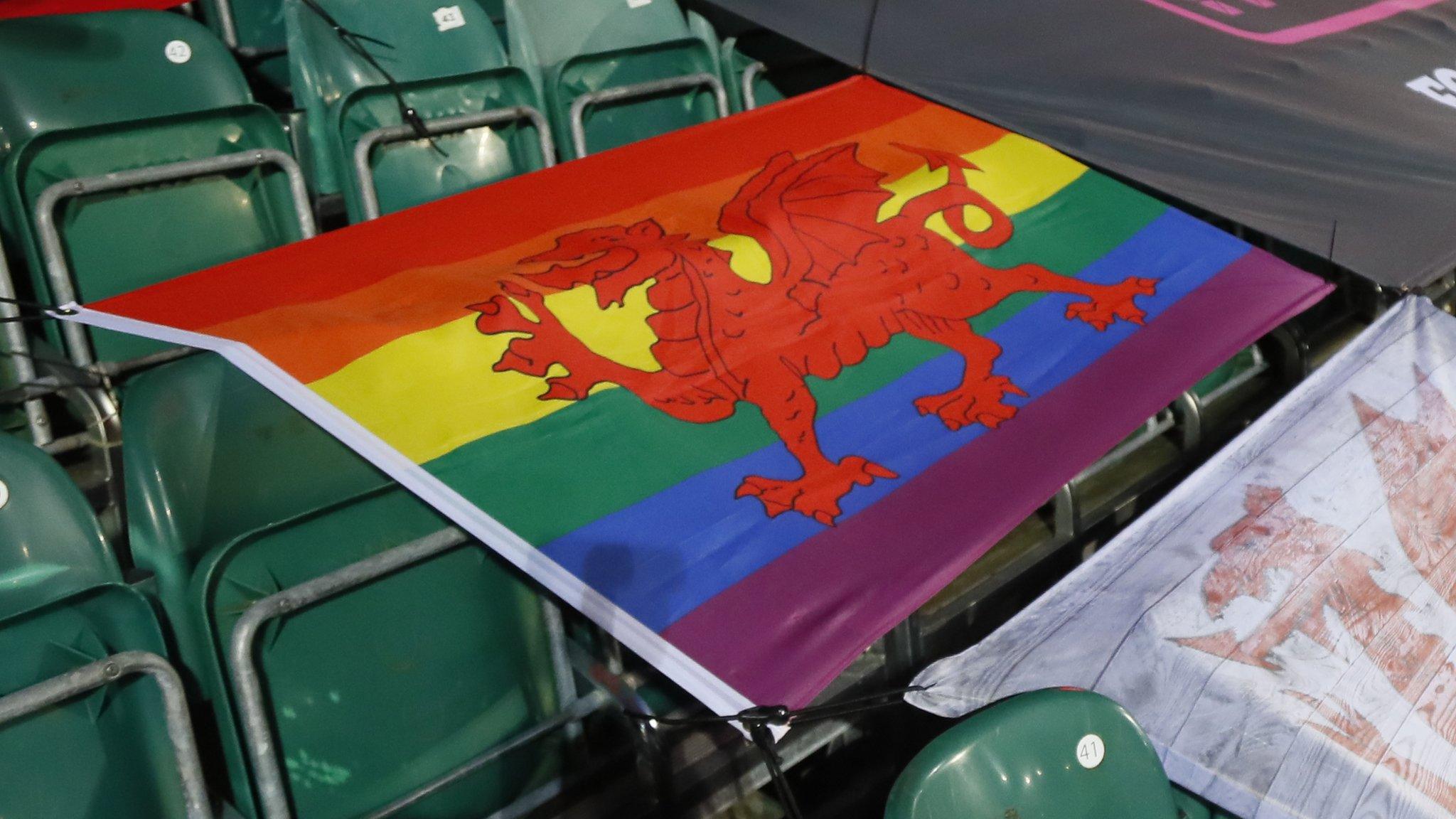
- Published22 October 2020
